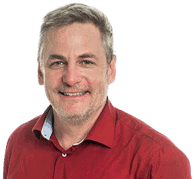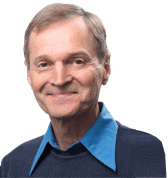The DeepVax Team
DeepVax is a research-driven biomedical company founded in July 2018 and headquartered in Zürich, Switzerland.
The company focuses on the discovery, development, manufacturing, and marketing of innovative therapeutic vaccines against chronic inflammatory diseases, obesity, ageing and cancer.
)
Prof. Mona O. Mohsen is a leading scientist and entrepreneur specializing in immunology and immunotherapy. She is an Associate Professor at the University of Bern and the CEO of DeepVax GmbH, driving the development of innovative therapeutic vaccines based on virus-like particles (VLPs) for cancer, chronic diseases, and infectious diseases.
Prof. Mohsen earned her B.Sc. and M.Sc. in biomedical science from Qatar University, followed by advanced training at the MD Anderson Cancer Center and Harvard Medical School. She completed her D.Phil. in Clinical Medicine at the University of Oxford in 2018. Since 2020, she has led independent research, securing major grants from the NIH and the Swiss Cancer League, and collaborating with industry partners to revolutionize therapeutic approaches and improve patient outcomes worldwide.
)
Martin F. Bachmann made a name for himself in the field of therapeutic vaccines and virus-like particles. He is Professor of Immunology at the University of Bern, Switzerland and visiting professor at University of Oxford, UK.
Martin Bachmann is the founder and co-founder of several biotech companies active in the field of therapeutic vaccines in humans (Saiba AG, Saiba Animal Health AG, SAIBA X AG, Evax AG and Deepvax GmbH, His research has a strong focus on therapeutic vaccines based on virus-like particles.
)
Daniel Speiser graduated in 1982 and received a Doctorate in Medicine in 1986 at the University of Zürich, Switzerland. He then completed a clinical degree in internal medicine, with specialization in clinical immunology and (hemato-) oncology. In the laboratory of Rolf Zinkernagel (then future Nobel Laureate), he specialized in infection and tumor immunology. Subsequently, he established his independent career in basic and clinical immunology at the Universities of Geneva, Toronto and Lausanne. Currently, Daniel is an honorary professor at the University of Lausanne and has an appointment at the University of Bern.
Starting in 1990, he accomplished many R&D projects and clinical trials of immunotherapy against cancer, pioneering its introduction in clinical oncology. For example, he demonstrated the in vivo importance of T cell avidity already in 1992. Furthermore, he contributed significantly to mechanistic elucidation of the graft-versus-leukemia effect, and of autologous T cell reactivity in cancer patients. Also, Daniel was the first to demonstrate in cancer patients that intratumoral T cells have a molecular and functional “exhaustion” profile, resembling the situation in animals and in patients with chronic infection. His innovative work is possible thanks to sound scientific work and knowledge, directly applied to real-life situations in the clinic.